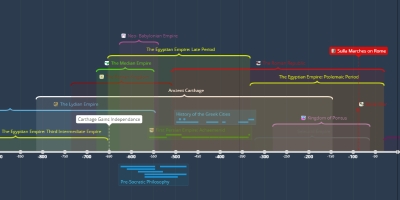Melissus of Samos (14 янв 470 г. до нашей эры – 26 сент 401 г. до нашей эры)
Описание:
Melissus, philosophical is largely remembered for being a defendant of Parmenides - particularly for laying out the latter's philosophy in a more straight-forward way. Melissus is known for defending Samos and defeating the legendary Greek statesman Pericles in battle in 441. Melissus in defence of Parmenides's monism - that all "is eternal, single, homogenous, ungenerated and unperishing" (Waterfield 2000, p.82) - proposes in opposition to Zeno's interpretation of all being one of no magnitude - that what-is is limited - Melissus argues that all that what is, is of infinite magnitude. This introduces a key difference between Melissus and many of the other elastics of his time. Waterfield points out Melissus denial of the void to demonstrate some of the key differences between him and Parmenides (and subsequently Zeno): "not only can there be no internal void, and so no change, there can be no emptiness beyond what-is either (Waterfield 2000, p.82). What-is is without limits, it is timeless and is whole, he seeming claims it is without emptiness; it is solid. In it being without emptiness and void, Melissus asserts like Zeno, but through very different reasoning, that there is no motion. This is because motion requires void, it requires space to move into; as his argument goes, which is unique for being the first to propose this requirement of movement.Melissus like many Presocratic philosophers believes the evidence of the sense to be unreal. This is mainly because what the sense perceives changes and due to the logic of his and Parmenides's philosophy: what-is cannot change. Hence everything we perceive is counter to logic and is false.
Much of his speculation seem to revolve around the issue of something coming from nothing; perhaps a thought which still plagues us today. How can what-is come from what-is-not in other words:
It always was what it was and always will be. For if it had come into existence, there was necessarily nothing before it came into existence. Now, if there was nothing , there is no way that anything could have come into existence from nothing. (Taken from Waterfield 2000 - Simplicus, 'Commentary on Aristotle's 'Physics'', CAG IX, 162.24-6 Diels).
Further that because nothing which is not whole, which is not complete, cannot exist - as change is an illusion of the sense - what-is has always been and will always be. This is an interesting view into some of the earliest reasoning of logos. Much of the logic of this era seems to reject notions of difference, change and transformation; theses ideas seem to be thought of as contradiction in logic. If something is defined as X, any state which contradicts X is seen as a fault in the logic of X. We understand now the chemical and biological composition of the world, change being an essential mechanic in so much of these processes; what the Presocratics seem to have seen as endless contradictions and paradoxes in their empirical understanding of the world. Perhaps much of this relates to and comes to influence Plato's theory of the forms too.
Добавлено на ленту времени:
Дата:
14 янв 470 г. до нашей эры
26 сент 401 г. до нашей эры
~ 68 years

